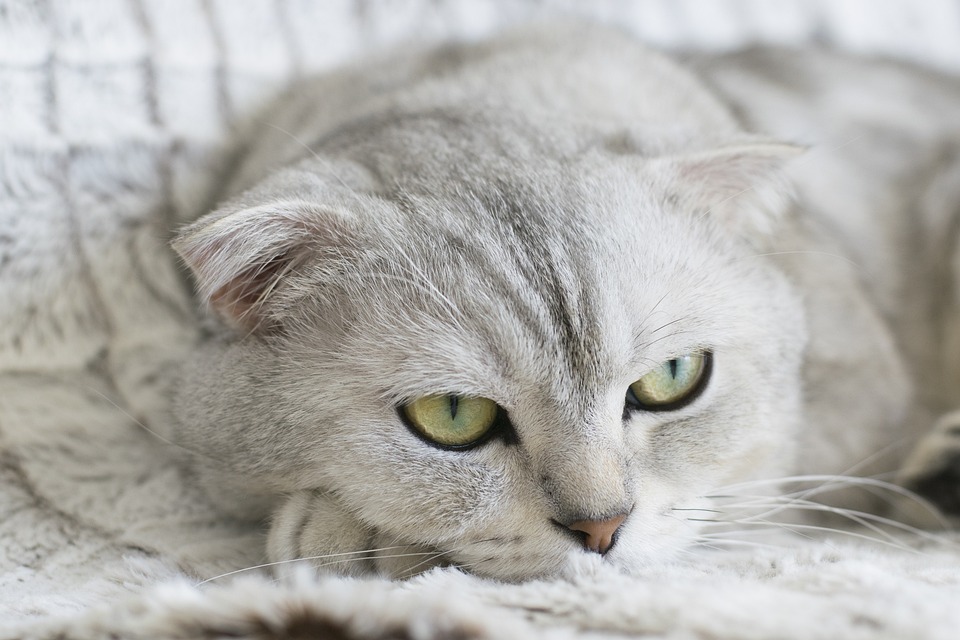Heartworm disease is a serious and potentially life-threatening condition that affects both dogs and cats. While it is more commonly associated with dogs, cats are also susceptible to this silent killer. As a responsible pet owner, it’s crucial to understand heartworm disease in cats and take the necessary steps to protect your feline friend. In this article, we will provide an overview of heartworm disease in cats, including its transmission, symptoms, diagnosis, prevention, and treatment.
Understanding Heartworm Disease in Cats
Heartworm disease is caused by a parasitic worm known as Dirofilaria immitis. It is primarily transmitted through the bite of infected mosquitoes. When a mosquito carrying heartworm larvae bites a cat, the larvae are deposited into the bloodstream. Over time, the larvae mature and migrate to the heart and lungs, causing severe damage.
The lifecycle of heartworms in cats is different compared to dogs. While in dogs, adult heartworms can reach up to 12 inches in length, in cats, they are typically only a few inches long. Additionally, cats are not ideal hosts for heartworms, which means that the infection is often less severe in cats compared to dogs. However, even a small number of heartworms can cause significant damage to a cat’s heart and lungs.
Common symptoms and signs of heartworm disease in cats include coughing, difficulty breathing, lethargy, weight loss, vomiting, and even sudden death. However, cats are known for their ability to hide signs of illness, making it challenging to detect heartworm disease in its early stages.
Diagnosing Heartworm Disease in Cats
If you suspect that your cat may have heartworm disease, it’s crucial to seek veterinary care immediately. A veterinarian will perform a physical examination and assess your cat’s overall health. They may also recommend blood tests to detect the presence of heartworm antigens or antibodies. In some cases, imaging tests such as X-rays or ultrasounds may be necessary to confirm the diagnosis.
Preventing Heartworm Disease in Cats
Prevention is always better than treatment when it comes to heartworm disease. It’s essential to understand the importance of year-round preventive measures for your cat. There are several monthly preventives available, including oral medications and topical treatments. These preventives work by killing the immature heartworm larvae before they can cause harm.
It’s crucial to consult with your veterinarian to determine the most suitable preventive option for your cat. They will consider factors such as your cat’s age, health status, and lifestyle. Additionally, following the manufacturer’s instructions and administering the preventive correctly is essential for its effectiveness.
Treating Heartworm Disease in Cats
Treating heartworm disease in cats can be challenging due to the potential for severe complications. There is currently no approved treatment specifically designed for heartworm disease in cats. In some cases, supportive care, including medications to manage symptoms, may be recommended. However, the focus is primarily on prevention and avoiding further exposure to infected mosquitoes.
Post-treatment care and prevention are crucial to ensure that the infection does not recur. Regular check-ups and follow-up testing are necessary to monitor your cat’s progress and detect any potential re-infection.
FAQs (Frequently Asked Questions)
Here are answers to some commonly asked questions about heartworm disease in cats:
Q1: Can my indoor cat get heartworm disease?
A1: Yes, even indoor cats can get heartworm disease if they are bitten by infected mosquitoes.
Q2: How long does it take for heartworms to mature in cats?
A2: It takes approximately six to eight months for heartworms to mature in cats.
Q3: Can heartworm disease be transmitted from cats to humans?
A3: No, heartworm disease cannot be transmitted from cats to humans.
Q4: Are there any natural remedies or supplements for heartworm prevention in cats?
A4: While some natural remedies and supplements may have anecdotal benefits, there is no scientific evidence to support their effectiveness in preventing heartworm disease in cats.
Q5: Can heartworm disease in cats be cured without treatment?
A5: No, heartworm disease in cats cannot be cured without treatment. It is essential to seek veterinary care for proper diagnosis and treatment.
Q6: Is heartworm disease more common in certain regions?
A6: Heartworm disease is more prevalent in regions with a higher mosquito population, but it can occur anywhere.
Q7: Can heartworm preventives be given to pregnant or nursing cats?
A7: Some heartworm preventives are safe to use in pregnant or nursing cats. However, it’s crucial to consult with your veterinarian for the most appropriate option.
Q8: What are the potential side effects of heartworm preventives in cats?
A8: Side effects of heartworm preventives in cats are rare but can include vomiting, diarrhea, and allergic reactions. Consult with your veterinarian if you notice any unusual symptoms.
Q9: Can heartworm disease recur after successful treatment?
A9: While recurrence of heartworm disease is rare, it is possible. Regular preventive measures and veterinary check-ups are essential to minimize the risk.
Q10: How often should I have my cat tested for heartworms?
A10: Your veterinarian will recommend the appropriate testing schedule based on your cat’s risk factors and local prevalence of heartworm disease.
Conclusion
Heartworm disease is a significant concern for cat owners, and understanding its transmission, symptoms, diagnosis, prevention, and treatment is crucial. Regular veterinary check-ups, year-round preventive measures, and taking necessary precautions to minimize your cat’s exposure to infected mosquitoes are essential for protecting your feline companion from this potentially life-threatening disease. Stay informed, consult with your veterinarian, and prioritize your cat’s health and well-being.








